The History of the Manchester Derby
For a rivalry first contested in 1881 with stadiums just four miles apart and club names that both include the word “Manchester” in them... it all started off so friendly.
Then the 2000s came along and ruined everything (well, actually, made it all better from a sporting point of view).
The rivalry match between Manchester United Football Club and Manchester City Football Club is a rarity – it’s a true modern rivalry, ignited by the antics and words of living-memory heroes rather than age-old and long-forgotten actions of past generations.
That’s not to say there weren’t some bumps along the road, but there was actually a time when Manchester’s two dominant sides got along quite well.
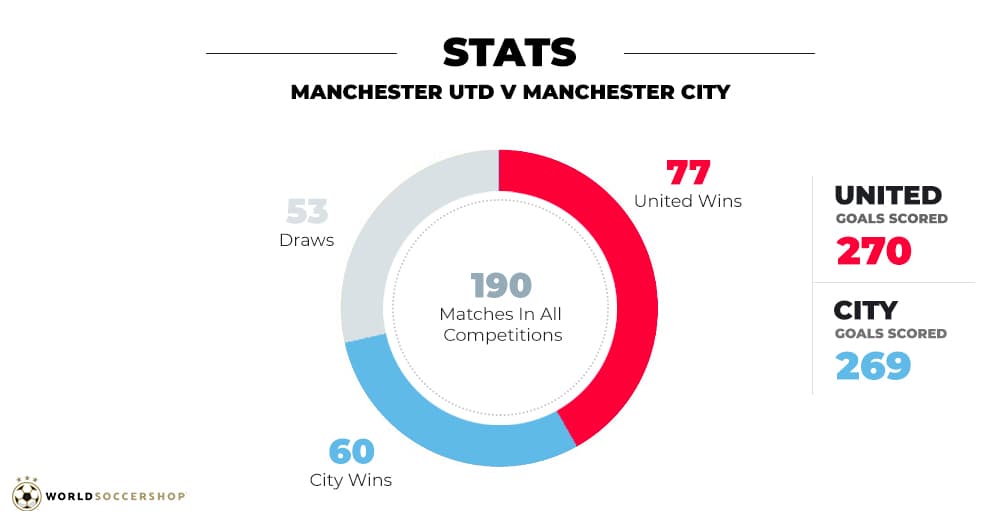
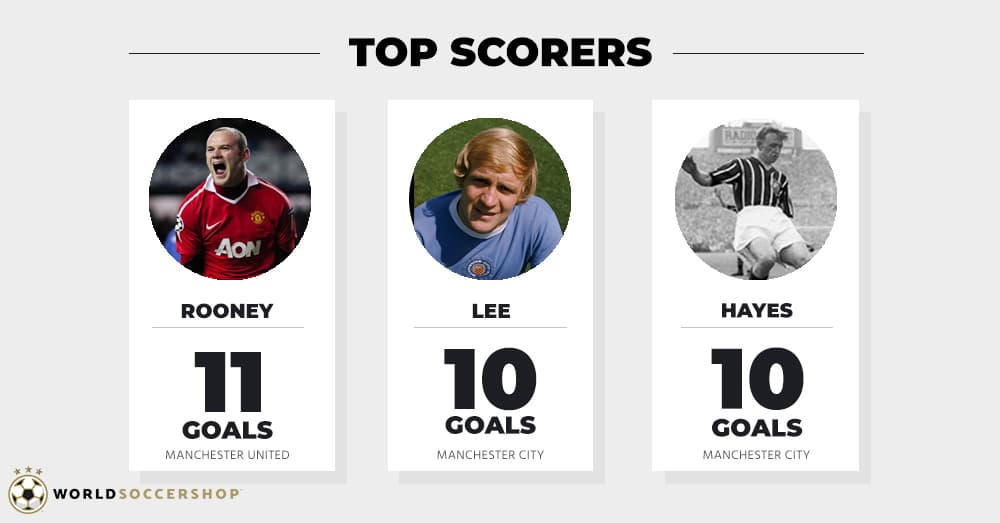
IT STARTED OFF FRIENDLY
Between 1881 and 1893, United and City met only a handful of times. There was no professional soccer league at the time, and there were also numerous fledgling soccer clubs in the city of Manchester trying to rise to power. When City played United, it wasn’t a matter of crosstown rivals as much as it was just two local clubs playing a match against one another.
The teams did begin playing against each other regularly in an organized top division of English football in 1894, but there was no ferocity behind the matches. In this period, spectators often supported United one weekend and City the next – whichever team was playing at home. There was no “red” or “blue side” of Manchester as we know it.
Fans watch on during a Manchester Derby match in the early 1900s.
In fact, in 1906, City even did United a solid.
A financial scandal in which Manchester City were caught overpaying their players and thus breaking financial rules set by the league (stop us if this sounds familiar) saw a whopping 17 players banned or suspended from representing City ever again. When the suspensions ended, four City players made their way across the (non-existent) divide to play for United. They helped the Red Devils win a league title in 1908.
Their move was met with no ill-will from either side – it was actually seen as a sign of goodwill between the two, such was the nature of club and supporter relations in the early 1900s.
It would continue this way for most of the 20th century until a few incidents in the 70s planted seeds that would blossom again in the modern game.
GEORGE BEST AND DENNIS LAW
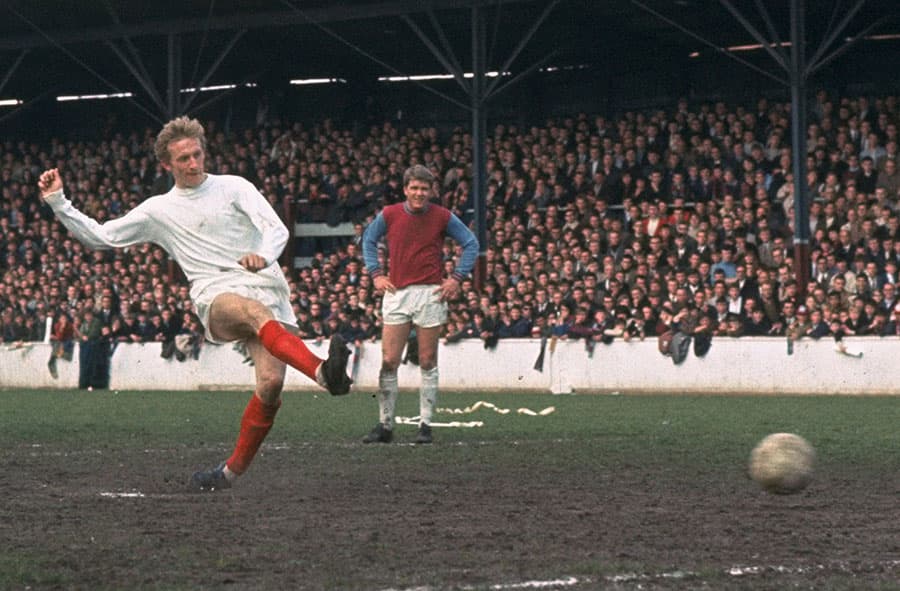
Dennis Law in his Manchester United days (he would later play for City).
In 1970, Historic Manchester United and England striker George Best went flying into a challenge in the Manchester Derby.
A bad one.
Though it wasn’t seen as such at the time, it did leave City’s Glyn Pardoe with a broken leg. Pardoe was immediately stretchered off the pitch, with fears that he may lose his leg over the incident.
The following season, City’s Francis Lee accused Best of diving in the return fixture between the two.
How did he do so? By demonstrating, theatrically, of course. He was booked for his efforts.
In 1973/74, with United threatened by relegation, their supporters decided to take things into their own hands in the Red Devils’ match against City.
It was the penultimate game of the season and United needed a win or a draw to even have a hope of staying up – other results needed to go in their favor, as well.
Manchester City forward and former United player Dennis Law scored a smooth 80th minute back-heel to put City up 1-0 and all but relegate his former club. The United fans had other ideas.
They stormed the pitch, not once, or twice, but three times in an effort to halt the match, have it suspended and thus replayed, giving the Red Devils another chance.
Their efforts were in vain. The match was concluded (with a few scant minutes left unplayed) and United went down.
THE MODERN ERA: THE RIVALRY TRULY BEGINS
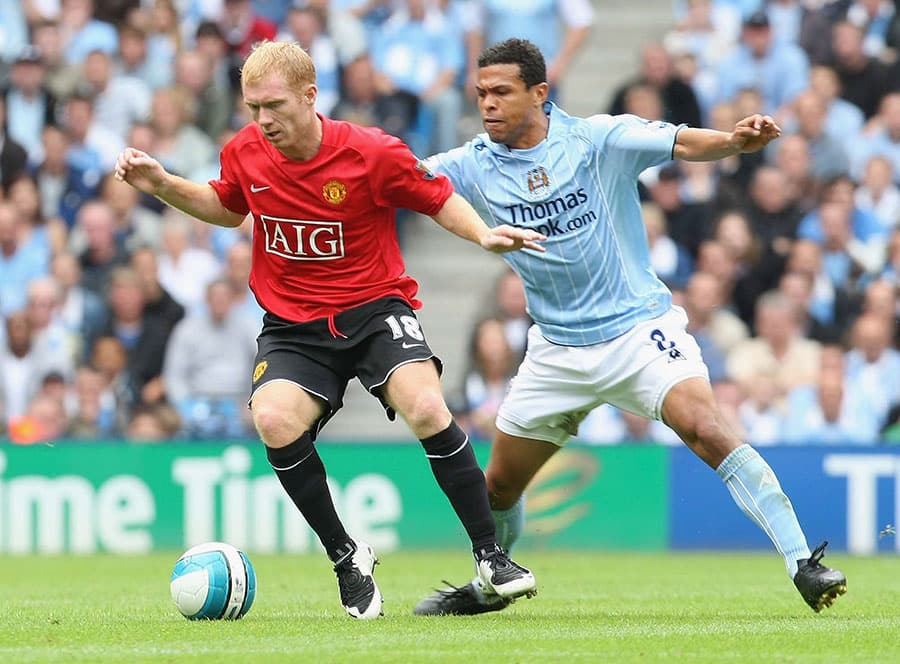
It’s surprising that, given the above circumstances, things still remained calm between the two halves of Manchester.
In the late 1900s and early 2000s, United, back in the top flight and experiencing one of the most lucrative stages of their history, evolved to become well on top of City. The power in Manchester resided at Old Trafford, but tides began to turn again in the late 2000s, and a real rivalry grew with it.
The 2007/08 season was an indicator. An historic one for Manchester United, this season saw them at nearly the height of their powers. But City did the double over them that year, you might remember. It was the first time such had happened since the 1969/70 season, and it would be a sign of things to come, as City grew in stature and dominance.
2009/2010 Incidents
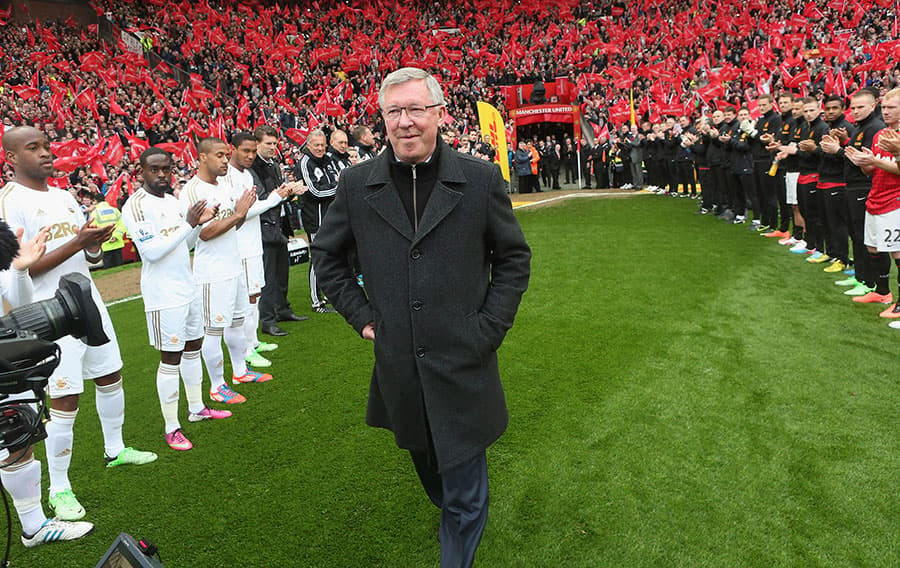
Famous United manager Sir Alex Ferguson really ignited the flame with comments he made on the Citizens in 2010.
Manchester United forward Carlos Tevez made the switch from red to blue as part of City’s big summer spending spree, and the marketing team at City was happy to remind all of Manchester about it. With a billboard.
“Welcome to Manchester” read the graphic featuring a player who had been playing and living in Manchester already.
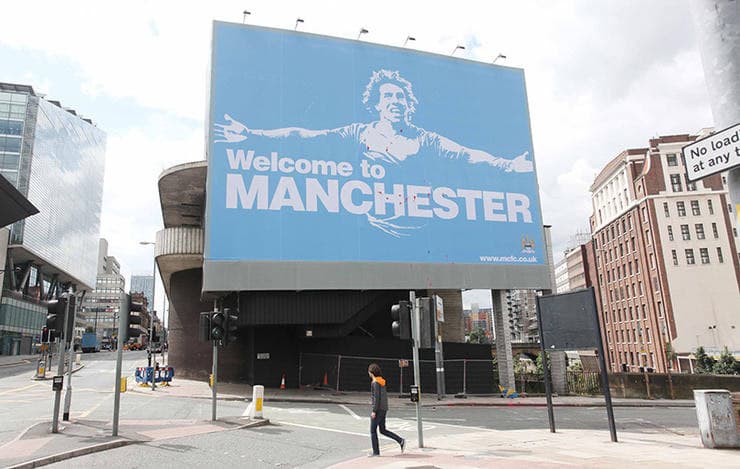
Ferguson responded in a press conference days later, calling his “noisy neighbors” a “small club with a small mentality.”
Consider Fergie rattled.
He would then go on to call that season’s match between the two to be the greatest Manchester Derby of all-time.
But the fun didn't stop there. The Tévez cross-town transfer ruffled more feathers than just Fergie's.
Manchester United right back Gary Neville took to the newspapers ahead of a Carling Cup clash between the two sides to tell the world how he really felt about the Tévez transfer.
Fergie was right to not give Tévez the pay raise that ultimately ended with his transfer to City. United didn't need him and he wasn't worth the extra cash, Neville said.
Consider Tévez rattled.
With Manchester United up 1-0, Tévez scored twice, securing a 2-1 first leg victory over the Red Devils. Rather than celebrate his strikes in a traditional fashion, he sent Neville, who was warming up on the sideline, a talking mouth gesture with his hands.
Neville gave him the bird.
Told you feathers had been ruffled. Here's Tévez in a few interviews after the match.
“There was nothing malicious intended whatsoever,” Tévez said the following Thursday. “I was not trying to incite anyone but I was entitled to say to Neville that he should have been more respectful. For the second goal I ran to the touchline and cupped my ears and looked up to the part of the ground where the United directors were sitting, and also to Ferguson in the dugout, because I wanted them to know this was my response to them saying I was not worth the money.
“People from United have been speaking about me publicly and criticizing me but I wanted to do my talking on the pitch because that was the best way of responding to all these people, such as Neville, who were saying United were right to let me go.”
“My celebration was directed at Gary Neville,” he later said on the radio in Argentina. “He acted like a complete boot-licker when he said I wasn’t worth £25 million, just to suck up to the manager.
“I don’t know what the hell that moron is talking about me for. I never said anything about him. I didn’t go overboard in my celebration and it was directed at Gary, not at Ferguson and not at the fans.”
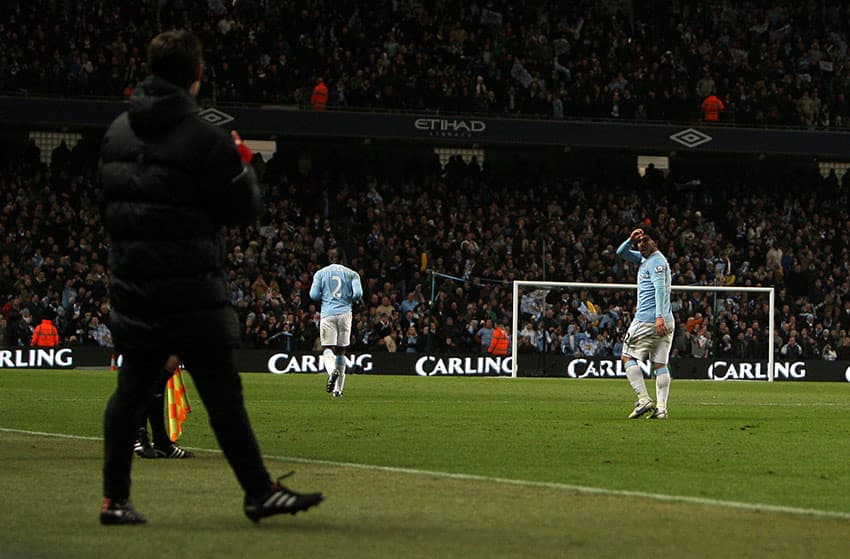
Gary Neville gives Carlos Tévez the finger after the Argentine scored a brace in a semi final league cup match.
2011 Incidents
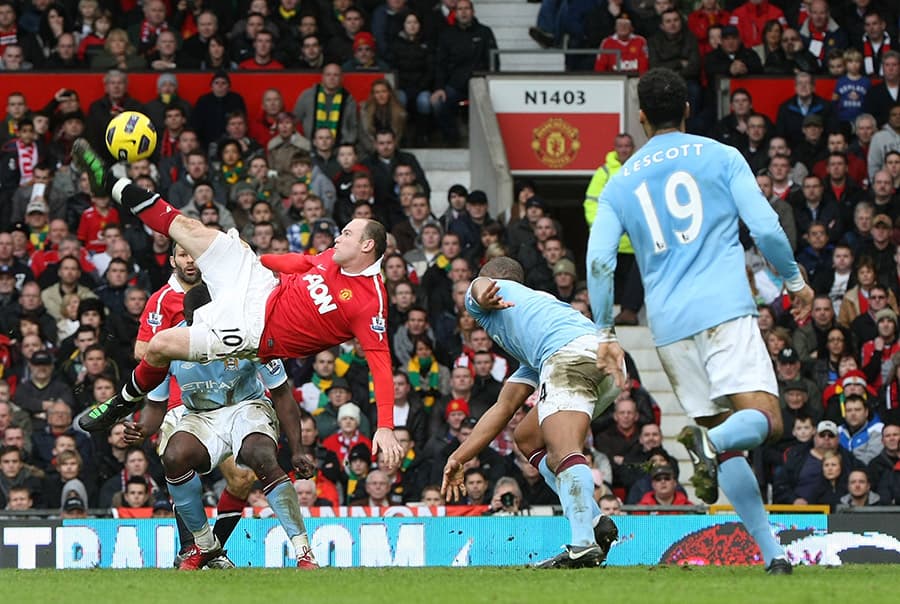
The 2011 matchups between the two sides would see some truly iconic moments born.
First, the overhead kick that dented City’s title hopes and inched United closer to claiming the trophy over their rivals.
And second, Why. Always. Me?
2011/12 Incidents
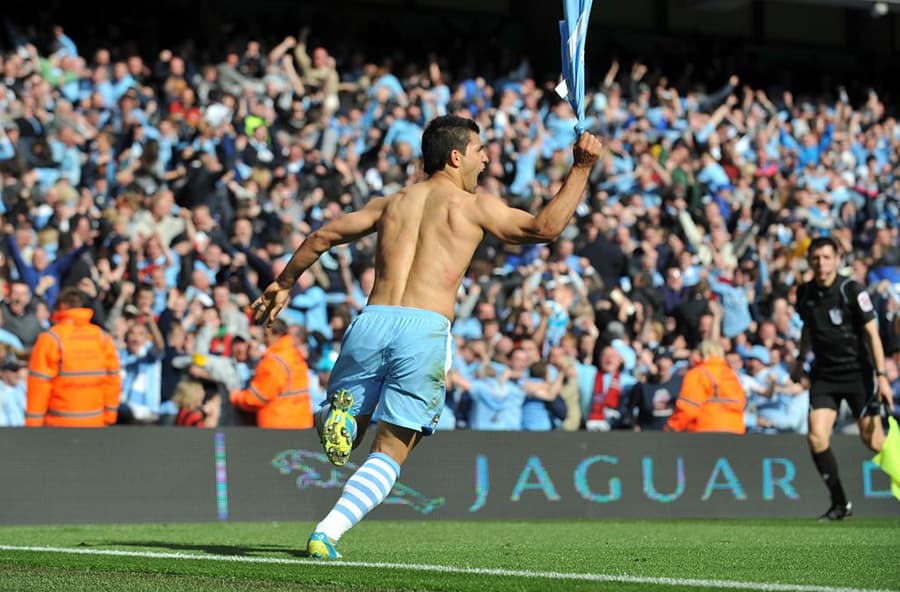
2012 featured a dream Manchester Derby for the neutral spectator, as the two sides met at the top of the table in the spring with the trophy on the line.
The match saw City’s Nigel de Jong batter United’s Danny Welbeck, setting Mancini and Ferguson against each other on the touchline immediately. They each would accuse the other of starting it (and continuing it) after the match.
As you see in the video above, City would go on to win the derby, edging Manchester United on the league table only by goal differential.
United would win their next match, however, only needing 3 points to secure the premier league. You remember what happened next.
City won the title in the final minutes of the season, while some at Old Trafford thought they had won the title because news was slightly delayed after Aguero’s late goal.
2012/13 Incidents
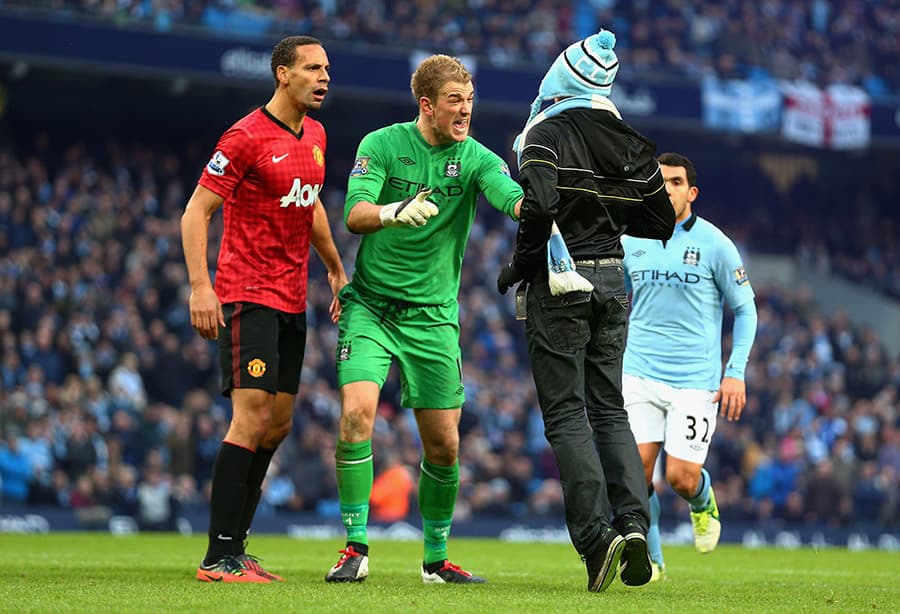
The match would further heat up at the next meeting at The Etihad the following Fall.
City were on a 37 match unbeaten streak, but two early goals from Rooney threatened to end it. City fought back through Touré and Zabaleta, the latter of which scored in the 86th minute, causing City fans to believe their record was safe.
Until Robin van Persie scored in stoppage time to end the unbeaten run and set alight a particular City supporter. Rio Ferdinand had his face cut by coins thrown by angry city fans and was then nearly allowed to confront that very City supporter who had invaded the pitch, before Joe Hart stepped in to push him off.
2016/17 Incident
Things remain heated up to recent history as well. Like when Fellaini gave Sergio Aguero a taste of his forehead.



Commenti
Posta un commento